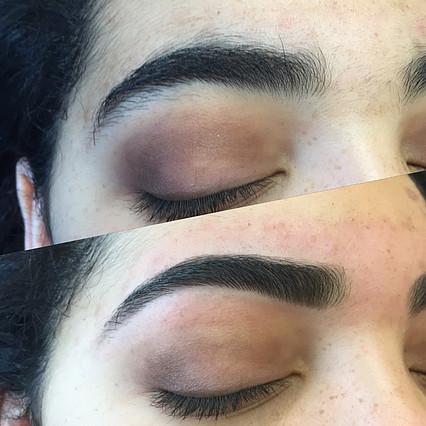To Buy Prednisone Online Visit Our Pharmacy ↓

The Emotional Highs and Lows of Prednisone
Prednisone, a powerful steroid medication, is often described as an emotional roller coaster by those who have experienced its effects. When your doctor hands you the script, you may feel a mix of hope and apprehension, knowing that this potent drug can bring both relief and challenges. As the medication begins to work its magic, you might find yourself riding high on a wave of energy and euphoria, feeling like you can conquer the world.
However, the highs are often followed by the lows, as prednisone can also trigger intense mood swings, irritability, and even depression. You may find yourself snapping at loved ones or feeling uncharacteristically down, wondering if the benefits of the drug are worth the emotional toll. It's important to remember that these emotional side effects are not uncommon and that you're not alone in navigating this tumultuous journey.
Coping with the emotional highs and lows of prednisone can be a daunting task, but there are strategies that can help. Keeping a mood journal, practicing relaxation techniques, and seeking support from friends, family, or a therapist can all be valuable tools in managing the emotional fallout. Remember, while the ride may be bumpy, it's essential to keep your eye on the ultimate goal: better health and well-being.
| Emotional Highs | Emotional Lows |
|---|---|
| Increased energy and euphoria | Mood swings and irritability |
| Feeling of invincibility | Depression and emotional instability |
Managing Mood Swings: Tips and Strategies

Prednisone, a potent corticosteroid, can be a lifesaver for those battling chronic conditions, but it often comes with a side effect that feels like an emotional roller coaster. Mood swings, ranging from euphoric highs to devastating lows, can be challenging to navigate, but with the right strategies, you can maintain a sense of balance amidst the chaos.
One key to managing prednisone-induced mood swings is to prioritize self-care. Engage in activities that bring you joy and relaxation, whether it's indulging in a favorite hobby, practicing mindfulness, or spending quality time with loved ones. Creating a consistent routine can also help stabilize your emotions, providing a sense of structure and predictability in an otherwise turbulent time.
Open communication is another crucial aspect of managing mood swings. Share your experiences with your healthcare provider, who can offer guidance and potentially adjust your prednisone script if needed. Don't hesitate to lean on your support network, too – whether it's family, friends, or a therapist. Remember, you don't have to face this emotional journey alone, and seeking help is a sign of strength, not weakness.
Prednisone and Relationships: Navigating the Challenges
Prednisone, a powerful steroid medication, can significantly impact relationships due to its side effects on mood and behavior. The emotional roller coaster caused by prednisone can strain even the strongest bonds, leaving partners feeling confused and frustrated. It's crucial for those taking this medication to openly communicate with their loved ones about the potential challenges they may face, such as irritability, anxiety, and depression.
Patience and understanding are key when navigating the ups and downs of prednisone. Partners should educate themselves about the drug's side effects and be prepared to offer support during difficult times. Creating a safe space for open dialogue can help couples work through any issues that arise, ensuring that the relationship remains strong despite the challenges posed by the medication.
It's also essential for those on prednisone to practice self-care and stress management techniques to minimize the impact of mood swings on their relationships. This may include engaging in relaxing activities, seeking professional help, or joining a support group to connect with others who understand the struggles of living with this potent drug.
Remember, while prednisone can be a lifesaving medication, it's not a magic mouthwash that can wash away all problems. By working together, couples can navigate the challenges of prednisone and emerge with a stronger, more resilient relationship. With the right support and coping strategies, it's possible to maintain healthy, happy connections while managing the side effects of this powerful drug.
Sleep Disturbances: Coping with Prednisone-induced Insomnia

Prednisone, a potent corticosteroid, can wreak havoc on your sleep cycle, leaving you tossing and turning through the night. The drug's stimulating effects on the central nervous system can make it feel like you've downed a pot of coffee right before bed. Even if you manage to drift off, you may find yourself waking up frequently, unable to achieve the deep, restorative sleep your body craves.
To cope with prednisone-induced insomnia, it's essential to practice good sleep hygiene. Create a relaxing bedtime routine, avoid screens and stimulating activities before bed, and keep your bedroom cool and dark. If your doctor gives you the green light, consider taking your prednisone dose earlier in the day to minimize its impact on your sleep. Some patients find that taking their script in the morning helps them avoid the nighttime jitters.
If sleep disturbances persist, don't hesitate to talk to your healthcare provider. They may suggest adjusting your dosage, exploring alternative medications, or recommending additional strategies to help you get the rest you need. Remember, getting enough quality sleep is crucial for managing the emotional challenges of prednisone and promoting overall well-being during your treatment journey.
Prednisone Withdrawal: Dealing with Emotional Fallout
The emotional fallout from prednisone withdrawal can be a challenging journey. As the body adjusts to the absence of the medication, patients may experience a rollercoaster of emotions, from irritability and mood swings to feelings of depression and anxiety. It's crucial to remember that these emotional side effects are temporary and will eventually subside as the body regains its natural balance.
Managing the emotional aspects of prednisone withdrawal often requires a multi-faceted approach. Seeking support from loved ones, friends, or a mental health professional can provide a valuable outlet for expressing feelings and gaining coping strategies. Engaging in stress-reducing activities, such as meditation, deep breathing exercises, or gentle yoga, can help promote relaxation and emotional well-being during this challenging time.
It's important to work closely with a healthcare provider during the withdrawal process. They can offer guidance on tapering off prednisone gradually to minimize the intensity of emotional side effects. In some cases, a doctor may prescribe additional medications or suggest natural remedies to help alleviate mood swings and promote better sleep. Remember, everyone's experience with prednisone withdrawal is unique, and it's essential to be patient and kind to yourself as you navigate this emotional roller coaster. With time and proper support, you will emerge from this challenging phase feeling more like yourself again.
Finding Support: Connecting with Others on Prednisone
Navigating the emotional challenges of prednisone can be a lonely journey, but connecting with others who understand your experience can provide much-needed support. Joining a support group, whether in-person or online, allows you to share your struggles and learn coping strategies from those who have been in your shoes. These communities offer a safe space to discuss the emotional highs and lows, from the euphoric "happy pills" effect to the dreaded "hangover" of withdrawal symptoms.
In addition to support groups, seeking guidance from healthcare professionals is crucial. Your healthcare provider or a therapist specializing in chronic illness can help you develop a personalized plan to manage mood swings and other emotional side effects. They may suggest techniques such as mindfulness, deep breathing, or cognitive-behavioral therapy to help you navigate the emotional roller coaster of prednisone. Remember, you don't have to face this alone – reaching out for support is a sign of strength, not weakness.
It's also important to educate your loved ones about the impact of prednisone on your emotional well-being. Sharing informative resources and openly communicating your experiences can help them better understand and support you throughout your treatment journey. Consider inviting them to join you at a support group meeting or a healthcare appointment to foster a deeper understanding of your challenges. By building a strong support network of healthcare professionals, fellow patients, and loved ones, you can better navigate the emotional landscape of prednisone and find the strength to persevere. https://www.ncbi.nlm.nih.gov/pmc/articles/PMC5047948/ https://www.mayoclinic.org/prednisone-withdrawal/expert-answers/faq-20057923
Before & After
Testimonials
Read out what our customers say about our services.
Read Testimonials
Join Our VIP List
Great News!
Comming soon our new location in Fort Worth (Alliance area)
3529 Heritage Trace Parkway, Suite 163
Fort Worth, TX 76244
Sign up now to join our VIP list and receive coupons












